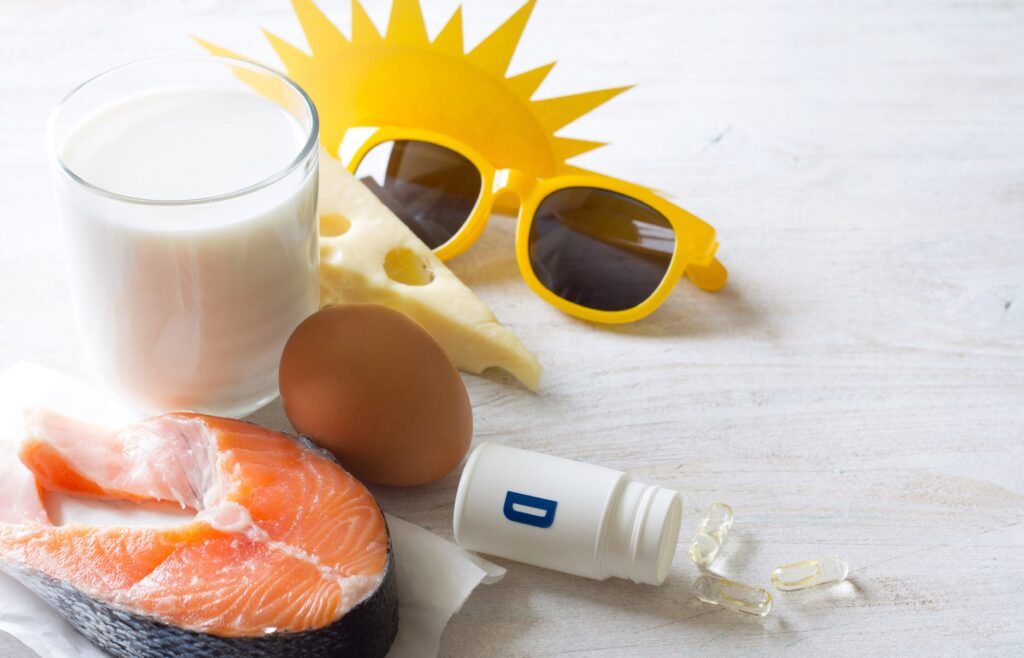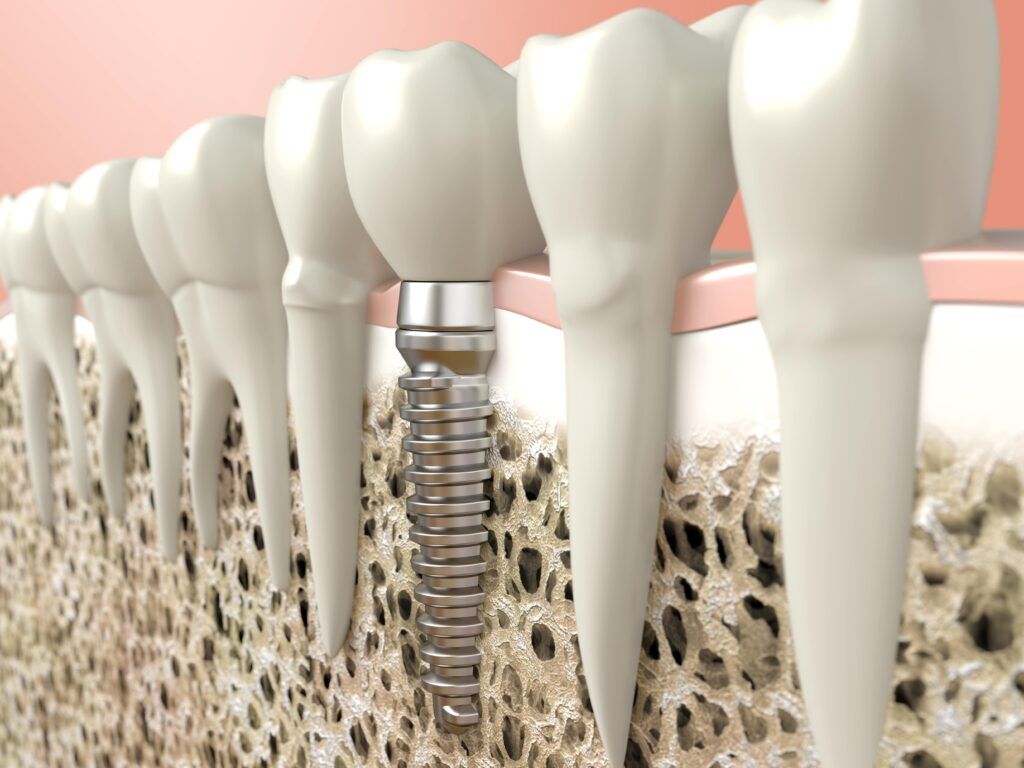The question of whether vitamin D can benefit dental implants is one that intrigues many patients and dental professionals alike. With the growing body of research on the importance of vitamin D for overall health, its specific role in dental implant success has become a topic of interest. This blog explores the current understanding of vitamin D’s impact on dental implantation, drawing on scientific studies and expert opinions.
The Role of Vitamin D in Bone Health
Vitamin D plays a pivotal role in maintaining bone health, a fact that has been well-documented through extensive research. This nutrient is essential for several reasons, primarily because it facilitates the absorption of calcium from the gut. Calcium is the cornerstone of bone mineralization, the process that gives bones their strength and structure. Without adequate vitamin D, our bodies cannot absorb enough calcium, regardless of how much we consume through our diet. This inefficiency can lead to calcium depletion from bones to maintain necessary blood calcium levels, thereby weakening bones and making them prone to fractures.
Vitamin D functions by binding to receptors in the intestines, increasing the efficiency of calcium absorption. This process ensures that calcium levels in the blood are sufficient to meet the body’s needs, including the critical requirement for bone formation and remodeling. Bone remodeling is a continuous process where old bone tissue is replaced by new bone tissue. Vitamin D’s role in this process is crucial because it ensures a balance between bone resorption (breakdown) and bone formation. When this balance is disrupted, bone diseases such as osteoporosis and rickets can occur.
Vitamin D and Osseointegration
The role of vitamin D in osseointegration is both critical and multifaceted, underscoring its significance in the success of dental implants. Osseointegration, the process by which a dental implant becomes integrated with the jawbone, is essential for the stability and longevity of the implant. Vitamin D, with its profound effects on bone metabolism and immune function, plays a pivotal role in this process.
Facilitating Bone Healing and Remodeling
Vitamin D’s primary role in osseointegration is through its influence on bone healing and remodeling. This nutrient is crucial for the absorption of calcium and phosphorus, two minerals essential for bone growth and health. By promoting the absorption of these minerals, vitamin D ensures that the bone around the dental implant has the necessary components for proper healing and integration. This not only speeds up the osseointegration process but also enhances the strength and density of the bone around the implant, providing a more secure anchor for the implant.
Enhancing Bone Mineralization

Vitamin D directly contributes to bone mineralization, a process critical for the formation of new bone tissue around the implant. This new bone growth is essential for the stability of the implant, as it helps to anchor the implant firmly within the jawbone. Adequate levels of vitamin D ensure that the bone forming cells, osteoblasts, can produce the matrix that gets mineralized to form hard, healthy bone. This action is crucial during the early stages of osseointegration when the implant is becoming integrated with the bone.
Modulating Immune Response and Reducing Inflammation
Vitamin D also plays a role in modulating the body’s immune response and reducing inflammation around the implant site. This is particularly important in the context of osseointegration, as excessive inflammation can interfere with the healing process and compromise the stability of the implant. By modulating immune function, vitamin D can help to reduce the risk of infection and excessive inflammation, thereby supporting the healing process and promoting successful osseointegration.
Supporting Overall Bone Health
Beyond its direct roles in bone healing and mineralization, vitamin D supports overall bone health, which is foundational for the success of dental implants. It ensures the maintenance of bone density and strength, which are crucial for supporting dental implants over the long term. This overarching role of vitamin D in bone health means that adequate levels of this nutrient are essential not just for the initial osseointegration process but for the longevity and success of the implant over time.
How Much Vitamin D is Needed?
The amount of vitamin D needed can vary based on age, geographic location, lifestyle, skin color, current vitamin D levels, and overall health. The Recommended Dietary Allowances (RDAs) for vitamin D, as established by the Institute of Medicine (IOM) of the National Academies in the United States, provide general guidelines for different age groups and are measured in International Units (IU) per day. It’s important to note that these guidelines are for maintaining bone health and normal calcium metabolism in healthy individuals.
Recommended Dietary Allowances (RDAs) for Vitamin D:
- Infants 0-12 months: 400 IU (10 mcg)
- Children 1-18 years: 600 IU (15 mcg)
- Adults up to 70 years: 600 IU (15 mcg)
- Adults over 70 years: 800 IU (20 mcg)
- Pregnant and lactating women: 600 IU (15 mcg)
Other Considerations:

- Sunlight Exposure: Vitamin D is unique because the body can produce it when the skin is exposed to sunlight. However, factors such as the use of sunscreen, clothing, geographic location, season, time of day, and skin pigmentation can affect UV ray exposure and vitamin D synthesis. People with minimal sun exposure may need higher dietary intake or supplementation.
- Dietary Sources: Natural dietary sources of vitamin D include fatty fish (such as salmon, mackerel, and sardines), fish liver oils, egg yolks, and fortified foods like milk, orange juice, and cereals. However, it can be challenging to meet the recommended intake through diet alone, especially for those with dietary restrictions or preferences that exclude these sources.
- Supplementation: Vitamin D supplements are widely available and can help individuals meet their vitamin D needs, especially when sunlight exposure and dietary intake are insufficient. However, the dosage should be carefully considered, as excessive intake of vitamin D supplements can lead to toxicity. Vitamin D toxicity can cause symptoms such as nausea, vomiting, weakness, and serious complications like kidney damage.
- Personalized Recommendations: Because individual needs can vary widely based on the factors mentioned above, it’s often beneficial to have vitamin D levels checked through a blood test. Healthcare providers can offer personalized recommendations based on these results, ensuring that supplementation, if needed, is both safe and effective.
Practical Advice for Patients
For patients undergoing dental implant surgery or those considering it, understanding the role of vitamin D in ensuring implant success is crucial. Here are practical pieces of advice to optimize vitamin D levels for dental implant health:
1. Get Your Vitamin D Levels Checked
Before undergoing dental implant surgery, it’s wise to have your vitamin D levels checked. This can help identify if you’re deficient or have adequate levels, allowing for necessary adjustments through diet, supplementation, or lifestyle changes. Maintaining optimal vitamin D levels can enhance bone healing and osseointegration, critical for implant success.
2. Consider Safe Sun Exposure
Vitamin D is often called the “sunshine vitamin” because the body produces it in response to sunlight exposure. Encourage safe sun exposure by spending a moderate amount of time (about 10-30 minutes, depending on skin tone and sensitivity) in the sun several times a week, preferably during the morning or late afternoon when the sun is not at its peak, to stimulate vitamin D production without risking sunburn.

3. Incorporate Dietary Sources of Vitamin D
Include foods rich in vitamin D in your diet. Fatty fish like salmon, mackerel, and sardines, fish liver oils, egg yolks, and fortified foods such as milk, orange juice, and cereals can boost dietary vitamin D intake. Although it may be challenging to meet all your vitamin D needs through diet alone, these foods can significantly contribute to your overall intake.
4. Consider Supplementation if Necessary
If you have low vitamin D levels, your healthcare provider may recommend supplementation. It’s important to follow their guidance on the type and dosage of vitamin D supplements to avoid the risks associated with over-supplementation, such as vitamin D toxicity. Never start a supplement regimen without consulting your healthcare provider, especially when preparing for surgery.
5. Monitor Vitamin D Levels Regularly
After starting supplementation or making lifestyle and dietary changes to increase vitamin D levels, it’s important to monitor your levels regularly. This ensures that they remain within the optimal range for bone health and implant success, and helps avoid the complications associated with both deficiency and excess.
6. Maintain Overall Bone Health
In addition to optimizing vitamin D levels, focus on maintaining overall bone health. This includes adequate intake of calcium and regular physical activity, especially weight-bearing exercises that can help strengthen bones and support the success of dental implants.
7. Follow-Up with Your Dental and Healthcare Providers
Regular follow-ups with your dental and healthcare providers are important to monitor the health of your dental implants and overall well-being. Discuss any concerns about vitamin D or bone health, and ensure that your implant care plan is tailored to meet your nutritional needs.
Conclusion
While more research is needed to fully understand the extent of vitamin D’s benefits for dental implants, current evidence suggests it plays a supportive role in bone health and the osseointegration process. Patients undergoing dental implant surgery should be aware of their vitamin D status and consider taking steps to ensure they have sufficient levels for optimal healing and implant success. As always, discussions with dental and medical professionals are crucial to making informed decisions about supplements and overall health strategies related to dental implants.

